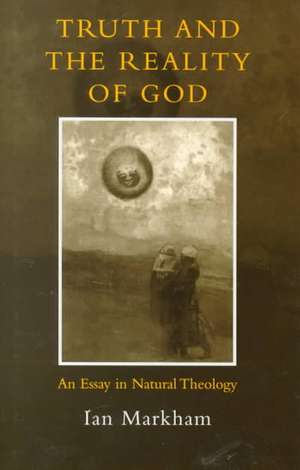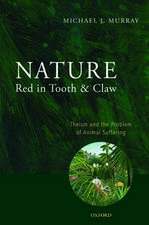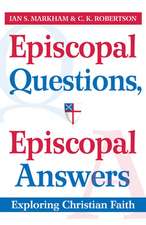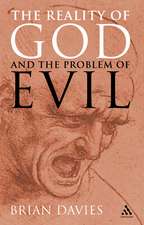Truth and the Reality of God: An Essay in Natural Theology
Autor Ian Markhamen Limba Engleză Hardback – 28 feb 1998
Preț: 595.25 lei
Preț vechi: 762.51 lei
-22% Nou
Puncte Express: 893
Preț estimativ în valută:
113.90€ • 119.17$ • 94.62£
113.90€ • 119.17$ • 94.62£
Carte tipărită la comandă
Livrare economică 02-16 aprilie
Preluare comenzi: 021 569.72.76
Specificații
ISBN-13: 9780567086181
ISBN-10: 0567086186
Pagini: 156
Dimensiuni: 140 x 221 x 17 mm
Greutate: 0.35 kg
Editura: Bloomsbury Publishing
Colecția T&T Clark
Locul publicării:London, United Kingdom
ISBN-10: 0567086186
Pagini: 156
Dimensiuni: 140 x 221 x 17 mm
Greutate: 0.35 kg
Editura: Bloomsbury Publishing
Colecția T&T Clark
Locul publicării:London, United Kingdom
Recenzii
'..the
argument
here
is
marked
by
infectious
enthusiasm
and
a
self-assurance
which
are
to
be
warmly
welcomed.'
Dr
John
Saxbee,
Church
Times
'In
this
concise
and
eminently
readable
essay,
Ian
Markham
gives
natural
theology
a
new
lease
on
life
and
a
new
claim
on
the
attention
of
contemporary
theologians
and
philosophers.
It
would
take
extraordinary
effort
not
to
be
impressed
by
Markham's
argument.'
First
Things
'This
book
is
clearly
written
and
offers
an
argument
worthy
of
being
argued
against.
It
is
indeed,
as
Markham
says
in
his
introduction,
a
stimulating
contribution
to
our
understanding
of
the
nature
of
God
and
our
assumptions
underpinning
truth.'
David
R.
Law,
Modern
Believing
'Markham's
argument
has
some
interesting
twists
that
make
it
stand
out
from
the
ways
in
which
British
thinkers
have
set
out
similar
arguments
in
the
past
few
decades.'
Lewis
Ayres,
Trinity
College
Dublin,
Theology
'An
illuminating
analysis'
Melanie
Philips,
Feed
The
Minds
'For
Markham,
those
who
continue
to
explain
the
world
without
believing
in
God
operate
with
an
unjustifiable
rationality
that
is
always
vulnerable
to
relativism
and
nihilism.
Either
God
and
rationality
go
or
God
and
rationality
stay,
either
Nietzsche
or
Aquinas.
In
what
amounts
to
a
sketch
of
a
program,
Markham
boldly
confronts
some
of
the
most
hotly
contested
issues
in
the
current
intellectual
debate.
His
confidence
in
the
resources
of
the
Christian
tradition
is
refreshing
and
summons
its
members
to
raise
their
voices
courageously
to
contribute
insights
ever-old
and
ever-new
to
the
growth
pangs
of
a
postmodern
age.'
David
J.
Casey,
Theological
Studies















